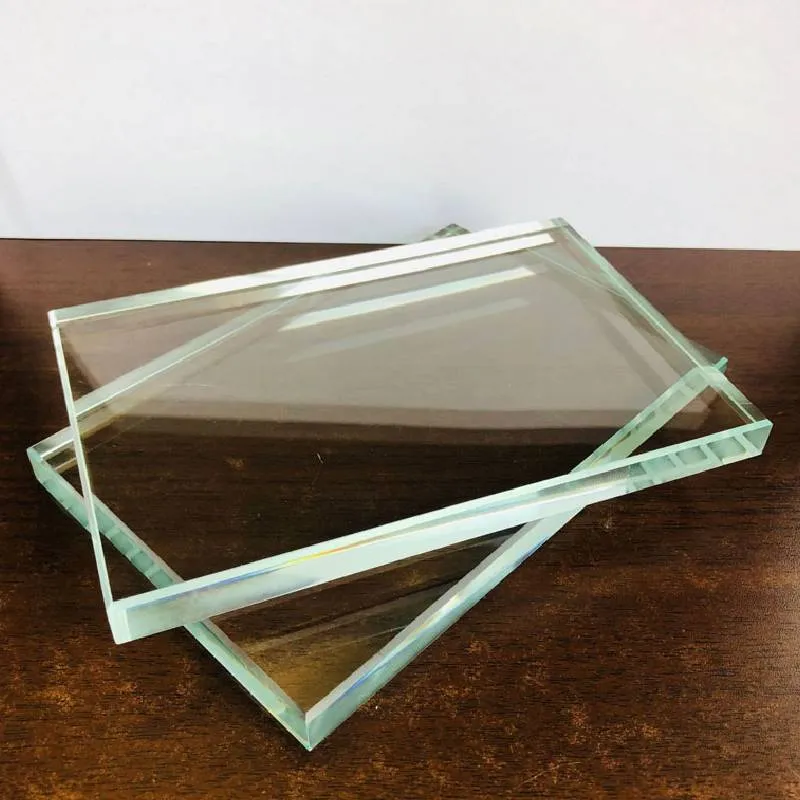The Benefits and Applications of Architectural Tempered Glass
Architectural tempered glass, also known as toughened glass, has become a cornerstone of modern architecture. This specially treated form of glass is engineered to withstand greater stresses and impacts than regular glass, making it an essential material in various construction applications. Its unique properties offer numerous advantages, allowing architects and builders to create innovative designs while ensuring safety and durability.
What is Architectural Tempered Glass?
Tempered glass is produced through a thermal treatment process that involves heating the glass to a high temperature and then rapidly cooling it. This process strengthens the glass by inducing compressive stresses on the surface, making it significantly tougher than conventional glass. Tempered glass is typically four to five times stronger than standard glass of the same thickness, making it ideal for high-stress environments.
Key Benefits
1. Safety and Security One of the most significant advantages of tempered glass is its safety features. When broken, tempered glass shatters into small, blunt pieces that are less likely to cause injury compared to the sharp shards of standard glass. This property makes it an excellent choice for buildings, particularly in areas where safety is a concern, such as in schools, hospitals, and commercial buildings.
2. Thermal Resistance Tempered glass can withstand higher temperatures and sudden temperature changes without cracking. This thermal resistance is crucial for architectural applications where large glass panels are exposed to direct sunlight or fluctuating temperatures. Buildings with substantial glass facades can benefit from this property, as it helps maintain structural integrity and aesthetic appeal.
architectural tempered glass
3. Versatility The versatility of architectural tempered glass is evident in its diverse applications. It can be used in windows, doors, shower enclosures, balustrades, and even as structural glass in facades. Its clarity and ability to transmit light make it an attractive choice for modern design, allowing for expansive views and natural lighting while enhancing the aesthetic appeal of buildings.
4. Energy Efficiency In line with modern architectural trends focusing on sustainability, tempered glass can contribute to energy efficiency. Many types of tempered glass can be coated with reflective or low-emissivity (Low-E) coatings to minimize heat transfer. This feature helps regulate indoor temperatures, reducing the reliance on heating and cooling systems, ultimately benefiting the environment and reducing energy costs.
5. Aesthetic Appeal The sleek and modern look of tempered glass can elevate architectural designs. Its transparency allows for seamless integration with other materials, creating a harmonious balance between indoor and outdoor spaces. Architects often use tempered glass to achieve minimalist designs while providing occupants with unobstructed views and an abundance of natural light.
Applications in Modern Architecture
Architectural tempered glass is widely used in contemporary structures, including skyscrapers, residential complexes, shopping malls, and educational institutions. Its strength and aesthetic qualities make it a preferred choice for glass curtain walls, skylights, and atriums. Additionally, tempered glass is increasingly utilized in interior applications, such as partitions and shower enclosures, contributing to an open and inviting atmosphere.
Conclusion
The role of architectural tempered glass in modern architecture cannot be overstated. It combines safety, durability, and design flexibility, making it an invaluable material for architects and builders alike. As innovation in architectural design continues to evolve, tempered glass will undoubtedly remain at the forefront, providing solutions that enhance both functionality and aesthetic appeal, while ensuring safety and comfort for building occupants. With its multitude of benefits, it is clear why tempered glass is a preferred choice in today's architectural landscape.
 Afrikaans
Afrikaans  Albanian
Albanian  Amharic
Amharic  Arabic
Arabic  Armenian
Armenian  Azerbaijani
Azerbaijani  Basque
Basque  Belarusian
Belarusian  Bengali
Bengali  Bosnian
Bosnian  Bulgarian
Bulgarian  Catalan
Catalan  Cebuano
Cebuano  Corsican
Corsican  Croatian
Croatian  Czech
Czech  Danish
Danish  Dutch
Dutch  English
English  Esperanto
Esperanto  Estonian
Estonian  Finnish
Finnish  French
French  Frisian
Frisian  Galician
Galician  Georgian
Georgian  German
German  Greek
Greek  Gujarati
Gujarati  Haitian Creole
Haitian Creole  hausa
hausa  hawaiian
hawaiian  Hebrew
Hebrew  Hindi
Hindi  Miao
Miao  Hungarian
Hungarian  Icelandic
Icelandic  igbo
igbo  Indonesian
Indonesian  irish
irish  Italian
Italian  Japanese
Japanese  Javanese
Javanese  Kannada
Kannada  kazakh
kazakh  Khmer
Khmer  Rwandese
Rwandese  Korean
Korean  Kurdish
Kurdish  Kyrgyz
Kyrgyz  Lao
Lao  Latin
Latin  Latvian
Latvian  Lithuanian
Lithuanian  Luxembourgish
Luxembourgish  Macedonian
Macedonian  Malgashi
Malgashi  Malay
Malay  Malayalam
Malayalam  Maltese
Maltese  Maori
Maori  Marathi
Marathi  Mongolian
Mongolian  Myanmar
Myanmar  Nepali
Nepali  Norwegian
Norwegian  Norwegian
Norwegian  Occitan
Occitan  Pashto
Pashto  Persian
Persian  Polish
Polish  Portuguese
Portuguese  Punjabi
Punjabi  Romanian
Romanian  Russian
Russian  Samoan
Samoan  Scottish Gaelic
Scottish Gaelic  Serbian
Serbian  Sesotho
Sesotho  Shona
Shona  Sindhi
Sindhi  Sinhala
Sinhala  Slovak
Slovak  Slovenian
Slovenian  Somali
Somali  Spanish
Spanish  Sundanese
Sundanese  Swahili
Swahili  Swedish
Swedish  Tagalog
Tagalog  Tajik
Tajik  Tamil
Tamil  Tatar
Tatar  Telugu
Telugu  Thai
Thai  Turkish
Turkish  Turkmen
Turkmen  Ukrainian
Ukrainian  Urdu
Urdu  Uighur
Uighur  Uzbek
Uzbek  Vietnamese
Vietnamese  Welsh
Welsh  Bantu
Bantu  Yiddish
Yiddish  Yoruba
Yoruba  Zulu
Zulu 

